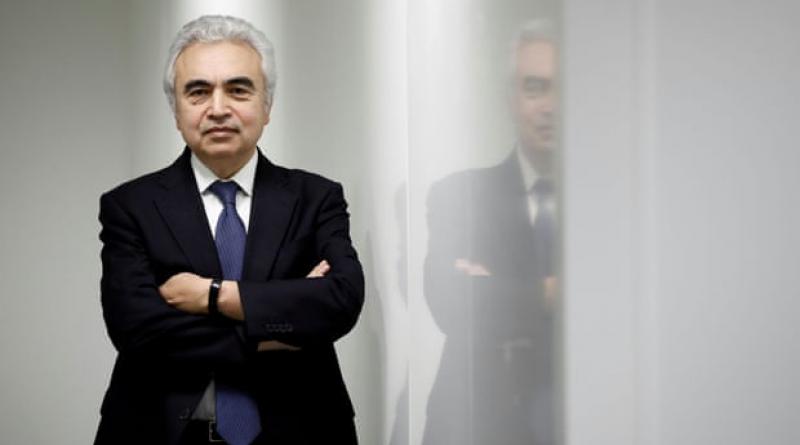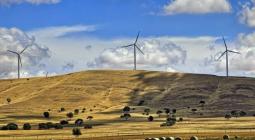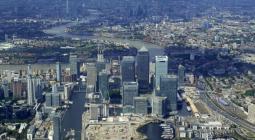Fatih Birol: Heed lessons of 2008 crisis, experts warn global leaders.

Call to avoid more inequality and climate breakdown when coronavirus crisis ends.
Global leaders must heed the lessons of the financial crisis of 2008 when they look to repair the damage from the coronavirus pandemic, leading experts have warned, to avoid entrenching disastrous social, health and environmental inequalities and hastening climate breakdown.
The 2008 global financial crisis and recession marked the last time the world experienced a convulsion comparable in scale to the coronavirus crisis, though starkly different in its nature. Governments responded first with economic rescue and stimulus packages worth trillions in taxpayer cash, followed in many cases by austerity programmes to cut back public spending.
But the past decade has produced far greater levels of inequality than has been seen since before the second world war, producing starker contrasts between the extremely rich and the rest in health, job security, education and other measures, with poorer people suffering worst and the middle classes squeezed while the income of the top 1% soared.
Greenhouse gas emissions have also risen, despite warnings from scientists and the Paris agreement of 2015, threatening an even worse crisis if governments do not rapidly change tack. The rise came despite some efforts to “green” the post financial crisis recovery, with low-carbon and environmental measures accounting for about 16% of the stimulus.
To avoid a similar outcome this time, leaders must ensure their response to the Covid-19 crisis looks to the good of the whole of society, rather than just the economy, and addresses the climate emergency as well, said Sir Michael Marmot, who led the landmark UK review of public health that found life expectancy fell following austerity.
“The scale of what is happening in the economy now is hugely greater than in 2008,” he told the Guardian. “We need to bring the climate agenda and the health agenda together. If we are not careful, the steps we take now will increase inequalities further. Enough people are saying now that austerity is not an experiment we want to repeat.”
Marmot is one of the leading voices calling for a “green recovery” that would direct any economic stimulus towards measures that reduce greenhouse gas emissions as well as generating jobs and repairing the economy.
The economic stimulus in the years after 2008 did produce some environmental improvements such as investments in renewable energy, which have cut the cost of solar and wind power. But the push to cut emissions was stymied by factors such as the sharp fall in the carbon price under the EU’s emissions trading scheme, and China’s construction push.
This time can be different, argues Lord Nicholas Stern, one of the world’s leading climate economists and author of the landmark 2006 review of the costs of climate change. “Technology is completely different now. We have seen the costs of key technologies such as renewable energy come right down. We have altogether superior electric vehicle technology. And we know more about air pollution, and how many people it kills.”
Putting money into the fossil fuel economy would be a waste, he added. “That produces insecurity. If we do things that leave stranded assets [in fossil fuel businesses], we also have stranded jobs.”
Yet talking about environmental measures in the midst of an economic crisis may not be popular, and could be seized on by populist opponents of climate action. The gilets jaunes protests in France were sparked by a rise in fuel taxes that had a particular impact on poorer workers in rural areas. Those protests had roots far deeper than just the fuel tax, some extending back to the response to the 2008 financial crisis, but some experts fear they show how green measures can be presented as contrary to working people’s interests.
“The gilets jaunes show there is a lesson to learn,” says Fatih Birol, executive director of the International Energy Agency, and one of the most influential global voices on energy economics. “I am afraid there will be a divergence among policymakers – they will see [a choice between] either jobs or climate change. It’s very important that we put policies in place that help to create jobs and stimulate a clean energy transition.”
Leading economists are hopeful, however, that those mistakes can be avoided and that the world will turn to “build back better” instead of pouring resources into fossil fuels.
“Focus on what we already know works,” said Birol. That means clean energy, such as wind and solar power, and energy efficiency. “Then focus on technologies that are ready for the big time – hydrogen [energy] and batteries. Third, we need sustained political support.”
The green recovery now has a rigorous intellectual underpinning, in the form of a paper by Nobel-winning economist Joseph Stiglitz, Stern and others, published earlier this month. The paper examined the aftermath of the 2008 crisis and found that putting public money into green projects produced greater returns in both the short and long term than pouring cash into conventional high-carbon projects.
That is crucial, according to Brian O’Callaghan, of the Smith School for Enterprise at Oxford University and co-author of the study, because governments want “shovel-ready” projects that produce a lot of jobs quickly, that do not need too high levels of existing skills or extensive training, and that provide infrastructure that benefit the economy.
Retrofitting buildings, working on cities to make them more friendly to cyclists and pedestrians, digging trenches for broadband connections, putting in networks for charging electric vehicles, and planting trees are all examples of “shovel-ready” projects that could create jobs in the short term and reduce emissions permanently, according to Stern. “These are things that can be done quickly, and they are labour intensive.”
“Policymakers have time to design policy that both accelerates our economic recovery and reduces inequality,” said O’Callaghan. “It is time to rethink economic stimulus. This spending should be about more than just increasing next year’s GDP. Once-in-a-generation government spending could be used to reduce inequality and set up new industries for the coming decade.”
20 May 2020
The Guardian




